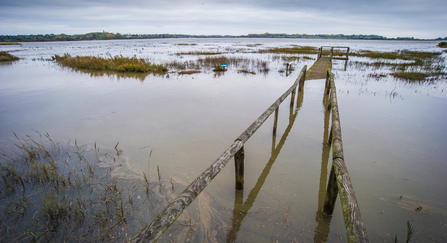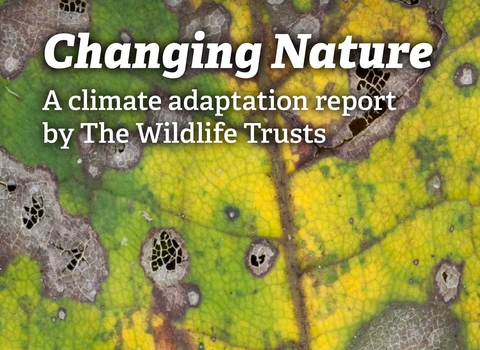Surrey's heathlands are at particular risk of wildfire from late spring, particularly during prolonged dry periods, and the county has experienced increasing incidents in recent years, with fires on Ash Ranges and Chobham Common – both extremely valuable sites for nature - as well as this week’s blaze on Pirbright Ranges which is estimated to have affected over 500 hectares.
The Wildlife Trusts’ first climate risk assessment, Changing Nature, examines the impacts of the changing climate across their estate, which covers nearly 400 square miles.
The research finds that, by the 2050s, under a future warming trajectory that reaches 3°C warming by 2100:
- Almost all the Wildlife Trusts’ reserves will see more than 1°C increase on hot summer days by 2050
- 55% of reserves will see nearby river flows drop by more than 30% during times of low flow
- Half of The Wildlife Trusts’ nature reserves will have 30+ days of very high fire risk yearly
James Herd, Director of Reserves Management at Surrey Wildlife Trust said:
“Every wildfire is a potential tragedy for nature, and it is deeply concerning that a changing climate is putting Surrey’s habitats at greater risk. We need more ambitious and urgent action from government, businesses and individuals to reduce the risk and impact of further warming.
“With the incidence of wildfires rising, it’s more important than ever to take care when visiting our nature reserves. Please dispose of all litter properly and any smoking equipment safely, remind children of the serious risk of fire, and take a picnic rather than a barbeque.”
The Wildlife Trusts want to see increased effort from governments, business, and other landowners on climate adaptation, including greater investment in nature-based solutions and a specific focus on resilience.






